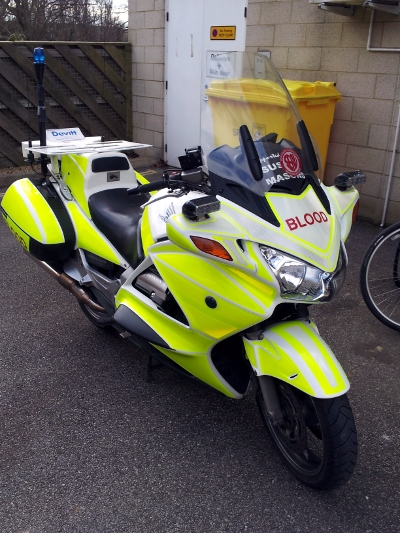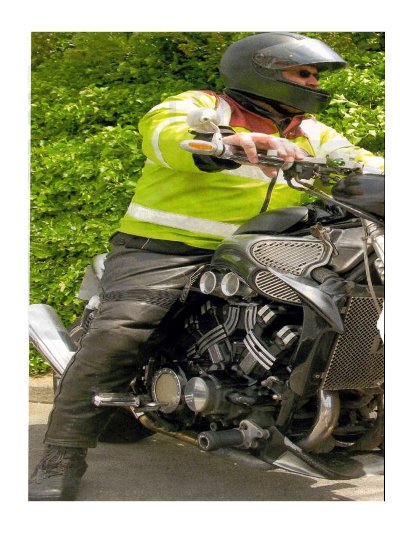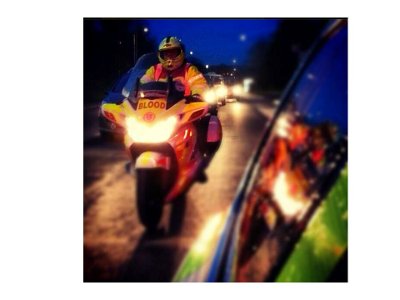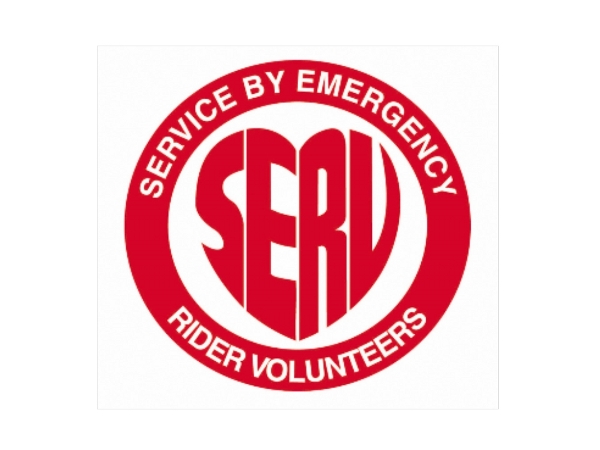Blood bikes
How the SERV volunteer bloodbikes work
We went along to the Brighton Bike night last Thursday and while we were there met a man from the
SERV Blood bike volunteers service, who gave us some interesting information about the charity
SERV blood bikes - here's how they work - what a great charity - motorcyclists helping to save lives again.
Who are we?
The
Service by Emergency Rider Volunteers (
SERV; www.serv.org.uk), is a registered charity (Charity No. 284455), set up in 1981 to supply a rapid and reliable means of transporting Emergency blood, blood products, X-rays, patient notes and laboratory samples to hospitals and medical facilities at night.
The National Blood Service (NBS) does not provide a standard, FREE, all-in-one delivery service which covers all of these options between the hours of 7pm and 6am, at weekends and on national holidays. Hospitals can rarely afford the luxury of using taxis or couriers at night for long distance journeys so
SERV Sussex volunteers supply this service free of charge. As a local charity,
SERV Sussex responds to in excess of 750 calls per year saving local hospitals on average £200,000 per annum. This allows re-deployment of much-needed funds for improved patient care and other essential facilities within the NHS.
What do we do?
Volunteer bike riders work on a rota, generally working one night in fourteen, waiting to respond to emergency calls relayed via their county controller. In a co-ordinated effort involving different counties,
SERV Sussex collects and securely delivers life-saving blood and blood products using an insulated, National Blood Service (NBS)-approved box. We also deliver urgent laboratory samples from hospitals in the south-east to testing centres in London at night.
SERV Sussex volunteers generally use their own machines and pay for the petrol themselves. The use of a marked bike is also a possibility; following a series of fund raising events,
SERV Sussex has purchased a number of dedicated vehicles to facilitate secure deliveries. These vehicles are used for riders who have been active members for a year, have been independently assessed and who can ensure cover any night of the week, when requested. Through public donations,
SERV pays for the fuel and upkeep of these dedicated vehicles.
How does it work?
Riders are on stand-by in many areas across the country, including: Herts, Beds, Kent, Essex, Suffolk, Oxfordshire, Bucks, Northants, Surrey, Sussex, Hampshire and London. The regions work in partnership to ensure an efficient system delivery network to get the blood to where it is needed as quickly as possible. When required, the hospital in question calls their local
SERV controller using a dedicated, manned phone number, specifying their needs and the controller then dispatches their duty rider from his/her home. If this call-out involves crossing county lines (which it often does), the duty controller contacts the relevant controller for that area and organises a handover of the material at a designated time and point and the riders always follow a set route.
In addition to
SERV Sussex covering Haywards Heath, Brighton, Worthing and Chichester hospitals, we also offer support to Eastbourne and Hastings hospitals. Furthermore, we are now supporting the national human milk banking service
"http://www.ukamb.orgl" which is not financed by government money. Our involvement revolves around collection of human infant milk from local donors at pre-arranged times and from the Trevor Mann baby unit in Brighton. We then facilitate a co-ordinated distribution of human milk for processing at the milkbank at St. Peter’s Hospital in Chertsey. We then transfer treated human breastmilk back to the Brighton premature baby unit at least three times a week and have carried out emergency runs of breastmilk at night from London to both Worthing and Chichester hospitals.
Donated breastmilk helps babies in need to get the best start in life and is the ideal food for babies. It contains all the nutrients (at least 400) that a baby needs and contains hormones and disease-fighting compounds which cannot be found in formula milk. Some babies are allergic to formula milk. If their mothers cannot temporarily provide enough breastmilk for whatever reason, these babies urgently need donated milk. In addition, giving breastmilk to premature babies protects them against a life-threatening gut infection, necrotising enterocolitis, and helps their development in the long term.
The financial future
In the current financial climate, the demands on the charity increase every year and there is a need to spread the service across the country. However, this is restricted by the ability of this valuable registered charity to fund and maintain this volunteer service. We need more volunteers and more financial support to help us purchase fuel, tyres, and bespoke insulated boxes to transport human milk to secure all of our services for the future. For more information about the charity and the work of the
SERV Sussex, please see:
www.servsussex.org.uk/
Wemoto



